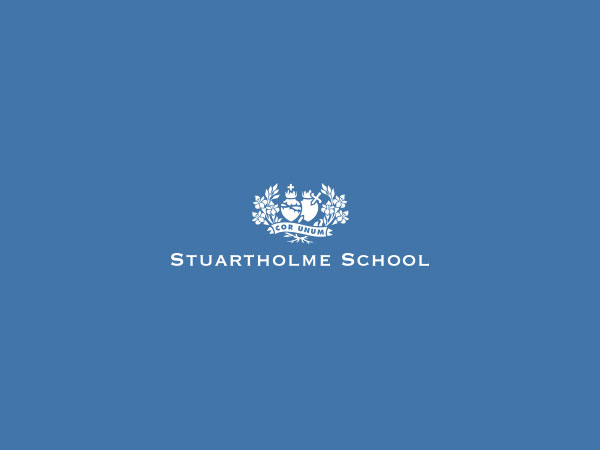When it was suggested to 17 year old Emma Campbell by her science teacher, Mr Ulcoq, to read E=Mc2 by David Bodanis she found she was more interested in the global implications of Einsetin’s work and how he felt about his work, than she was in the actual science.
“At the time I don’t think I realised that meant I was more interested in human rights and social change than physics,” said Emma.
Lucky for her though her interest in science during her school years and early adult life opened up opportunities to enter the field of health and human rights.
Dr Emma Campbell (Class of 2002) is a Doctor of Philosophy, holds a Bachelor of Science and Masters of Occupational Therapy Studies, all from The University of Queensland (UQ). In her current role as Associate Lecturer, School of Health and Rehabilitation Sciences at UQ, Emma teaches students about being an Occupational Therapist, and in their final year she teaches a course about human rights and what occupational therapists can do to create social change.
As a student at Stuartholme Emma always enjoyed science, so when the time came to fill out her QTAC forms, although she didn’t have a career in mind, science seemed like an obvious choice.
“While I was studying I had the opportunity to go to Canada and work on a neuroscience project which was all lab work. Labs are very quiet places and I realised that wasn’t the environment for me, I wanted a job where I could talk with people, and make an immediate difference in people’s lives.”
Searching for career-guiding inspiration, Emma read a book called ‘Race Against Time’ by Stephen Lewis and she was captivated by the book’s discussion of poverty and social inequalities., and I soon found myself arriving in Nepal as a volunteer in an orphanage.
“I soon found myself arriving in Nepal as a volunteer in an orphanage where I worked with children with disabilities”.
Fast-forward six months and Emma began studies in occupational therapy, hoping to gain knowledge and skills for a career focused on helping disadvantaged people like the children in Nepal.
“I hoped to become an international aid worker – and a qualification in a health profession was the first step.”
Occupational Therapy is a profession that aims to help people to be able to engage fully in their lives regardless of any challenges they might face. Most occupational therapists work in aged care, with children with disabilities, in rehabilitation, and in mental health. While studying occupational therapy, Emma also learnt that occupational therapists (OTs) can work with asylum seekers and refugees.
“I started my work in this area as a student, doing a research project about the refugee settlement workers’ experiences helping refugees to settle into their houses in Australia.
“I learnt about the changes that refugees experience when they first move into a new home in Australia, which can be quite different to living in a refugee camp or a home in a developing country.”
After graduation Emma found a position with Lifeline, working with their Refugee Claimants Support Service. There, she worked with asylum seekers who were living in the community.
“During this time I realised that I didn’t need to work overseas to make a difference to the lives of people who are disadvantaged, there were so many people facing challenges and working hard to build meaningful lives right here in Brisbane. So I began my PhD in Political Science, hoping to learn more about how to create social change and reduce suffering for asylum seekers in Australia. I graduated in January 2015.”
“Stuartholme was certainly a major influence in my career choice. It’s a school with a great focus on social justice – in extracurricular activities as well as within the curriculum.
“Things I learnt by deconstructing newspaper articles about asylum seekers in English class, in understanding global issues in Integrated Studies and the range of conversations we had in Religion class have all contributed to the decisions I’ve made.
In addition to the work with refugees, Emma spent two and a half years working with the Institute for Urban Indigenous Health. A large part of her job was doing home visits alongside an Aboriginal Health Worker and providing occupational therapy services to Elders and younger people who had chronic diseases (diabetes, heart disease, lung disease, chronic pain, mental illness, stroke etc.).
“Through the relationships I’ve built in my work at the Institute for Urban Indigenous Health, I’ve learnt a lot and found a passion for working in Indigenous Health.”
My advice for current Stuartholme students would be to think about what’s most important to you and what professions might share those values.
“Also, make the most of every opportunity that comes your way, you never know where it might lead you!”
OT KiDS
OT KiDS is a programme that supports the social and emotional wellbeing of children in detention. Originally, in 2012, Emma acted as a mentor to the newly graduated occupational therapists who initiated the programme. She now continues in her mentoring role and coordinates volunteer recruitment and service planning for the programme.
Children in detention often have traumatic backgrounds and now live in a highly controlled environment (detention centres) without any certainty about what will happen next in their lives. To address this, the OT KiDS programme happens weekly, and aims to provide children with a chance to engage in the childhood activities of play and learning which can create
opportunities to strengthen emotional wellbeing and resilience. Therapists plan sessions that are fun and activity-based, where therapy strategies are integrated in the activities so that children
can learn skills through their engagement, rather than learning them through a classroom or therapy style setting where an adult might explain some information to the children and then they might do an activity to practice a new skill. The programme involves 30 volunteers who are all occupational therapists.



